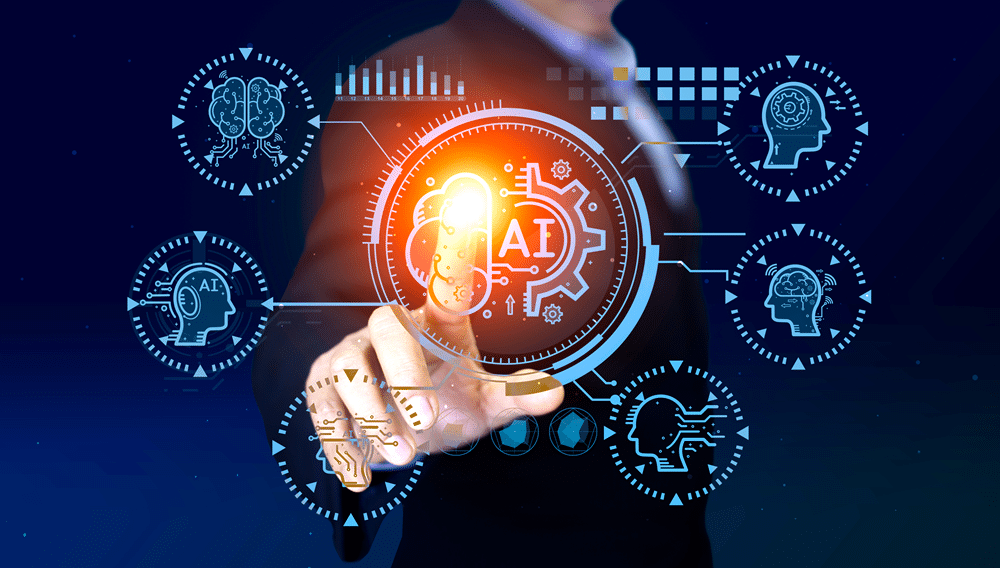Artificial Intelligence (AI) is no longer a fascination of technical enthusiasts. Today, AI impacts the world and has revolutionized how business is conducted in modern times.
It has also been a cause of concern as many people wonder if AI will take over their jobs. Executive coaches may also be wary and wonder if this modern technology will attract their clients rendering them redundant. However, what if there was a way in which AI and executive coaching programs could be combined to enhance the available benefits?
Reasons why AI can support executive coaching
- AI is capable of analyzing a huge amount of data that is almost impossible if done manually. The analysis can identify patterns and trends and can be used by coaches to gain insight into their clients’ areas for improvement, strengths, and weaknesses.
- AI can offer real-time feedback to clients. The feedback can be given in multiple ways, such as chats, emails, in-app notifications, and text messages depending on the technology being used. Real-time feedback is beneficial for clients to stay on track and progress towards achieving their leadership coaching program objectives. AI helps the clients and the coaches stay aligned on their progress.
- Every high-level executive is unique with different skills and abilities and often the same solutions may not work for every individual. AI can be useful in designing personalized coaching plans that are tailored to the specific goals and needs of the clients. Additionally, the plans can be modified or updated as required as the clients grow and learn. This ensures clients receive the maximum benefits from attending an executive leadership coaching program.
Ways in which AI can enhance executive coaching
- Personalized Insights
Based on client data, AI can enhance coaching by offering personalized insights and recommendations. Additionally, the Internet of Things (IoT) and wearable devices can be used by coaches to procure valuable insights into their clients’ behavioral and physical patterns. AI-based algorithms can analyze this information to provide insights into exercise routines, sleep patterns, stress levels, and more to the coaches. This data can be used by executive coaches to help their clients develop holistically with personalized plans.
- Efficient Task Management
Coaches can use AI to streamline routine administrative tasks and focus on the coaching relationships. AI-based scheduling programs can automatically schedule sessions based on the availability of clients, which saves energy and time for the coach. Additionally, AI can be used to take notes enabling the coach to develop their coaching relationships and offer the necessary support to their clients. Several smart tools like nudges and check-ins can be used to keep clients engaged between sessions. Other tools, such as data to run dipstick surveys before, during, and after the engagement are used to calculate and show the ROI and ROE.
- Stakeholders
Modern technology is beneficial to increase the stakeholders’ involvement. This gives them more visibility into their clients’ journeys and progress thereby procuring their buy-ins and ensuring complete support.
Tips to use AI to support leadership coaching
- Set a clear goal
Coaches must determine what goals they want to achieve using this modern technology. Some goals can be improving clients’ decision-making abilities, increasing their emotional intelligence, or staying accountable while developing their leadership presence. Once the goals are set, coaches can choose the most appropriate AI resources and tools.
- Find an appropriate AI coach
Not every AI-based coaching tool works the same. Some offer better feedback while others may generate superior personalized coaching plans. Individuals must find an AI tool and an executive coach who meets their personal needs for maximum benefits.
- Be open to feedback
AI-based coaching is not always perfect and there may be some mistakes. However, executives must keep an open mind and be open to receiving feedback that allows them to learn and grow.
Use AI as a supplemental tool to traditional coaching
AI-based coaching is not a replacement but must be used as an additional tool to work with traditional coaching. Combining an executive coach and AI tools can maximize the benefits of coaching.
AI in coaching has great potential but it is still in its infancy stage. It requires more research and tests to achieve its complete potential. An important consideration is privacy and security to ensure the client data is used ethically with their consent. Human coaches must adopt this technology with an open mind and recognize its benefits to enhance their coaching practice.





